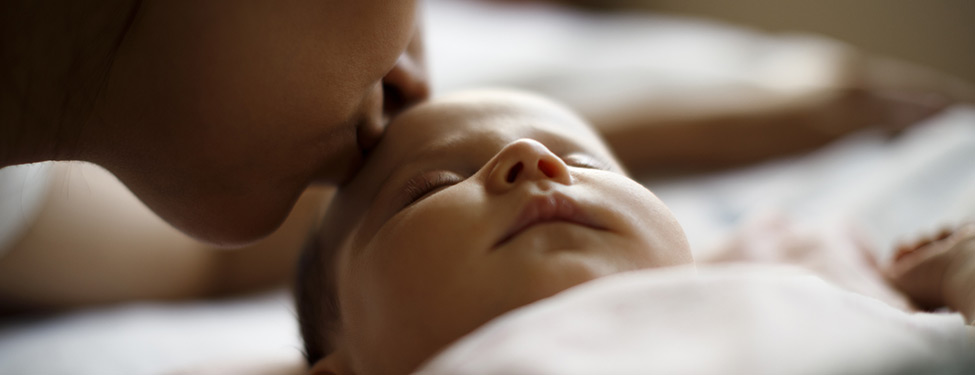Sleeping and Baby Safety

Providing a safe and secure home environment is important to a baby’s development and growth. This includes a safe place to sleep, baby-proofing electrical outlets, hard surfaces and sharp corners throughout the house, avoiding relatives with illnesses, maintaining good hygiene for the baby and mom and always using a properly installed appropriate car seat. Here are some helpful guidelines that you can do to create a safe space for your new baby:
Sleeping
- Babies should always be placed on their back for sleep. Research shows this is the safest.
- Babies should sleep on a firm sleep surface that does not incline.
- Remove all toys, blankets, pillows, and crib bumpers from the crib.
- Babies should sleep alone in their crib or bassinet; the sheet on the mattress should be a fitted one and snug.
- Swaddle your baby until they start to roll.
- Avoid smoking.
- Breastfeed if possible and offer a pacifier when breastfeeding is established or at any time for a bottle fed baby.
- Avoid overheating baby during sleep time.
- Room share with baby, keep the crib or bassinet in your bedroom for at least the first six months.
Home Safety
- No smoking around the baby. Both maternal smoking during pregnancy and secondhand smoke after birth should be avoided.
- Never leave baby alone around a pet or sibling
- Avoid large crowds
- Ask everyone to wash their hands before touching your baby
- Allow no one with signs of illness to be around your baby
Well-baby Visits
Well-baby visits are vital to ensuring the health of your child. Always keep your baby's pediatrician appointments for checkups. These visits, which may begin a few days after discharge from the hospital, are important to monitor and track your baby’s growth and development. They are also important for keeping your baby on track for immunizations. If your baby received immunizations in the hospital, keep the record and take it with you to the doctor.
Buckle Up Your Baby
TN state law mandates all children must be restrained in the vehicle using an age/height/weight appropriate car seat through age 8 and if they are less than 4'9" tall.
All children under 13 years of age must ride in the rear seat if available.
For infants, they must be in a rear facing car seat as long as possible, in the back seat of the car. They should ride in a rear facing car seat until 2 years of age and the maximum height/weight allowed by the car seat.
- The car seat must be buckled tightly to the car with the seat belt or LATCH connectors.
- The car seat’s straps should be snug and in slots at or below baby’s shoulders.
- The chest clip that locks your baby into the seat should be at armpit level for safety and comfort.
- Avoid putting your child in bulky clothes and do not place blankets under the baby.
If you need help installing your car seat, there are many places you can go for free assistance:
- Baptist Memorial Hospital for Women | 901-227-9027
- Shelby County Sheriff’s Department | 901-222-5859
- Memphis Police Department Call the precinct closest to you and ask for a Certified Technician
- Tipton County Sheriff | 901-475-3300
- Germantown Police Department | 901-754-7222
- Bartlett Police Department | 901-385-5555
- Collierville Police Department | 901-457-2500
For more Car Seat Safety tips, visit the National Highway Traffic Safety Administration website.


